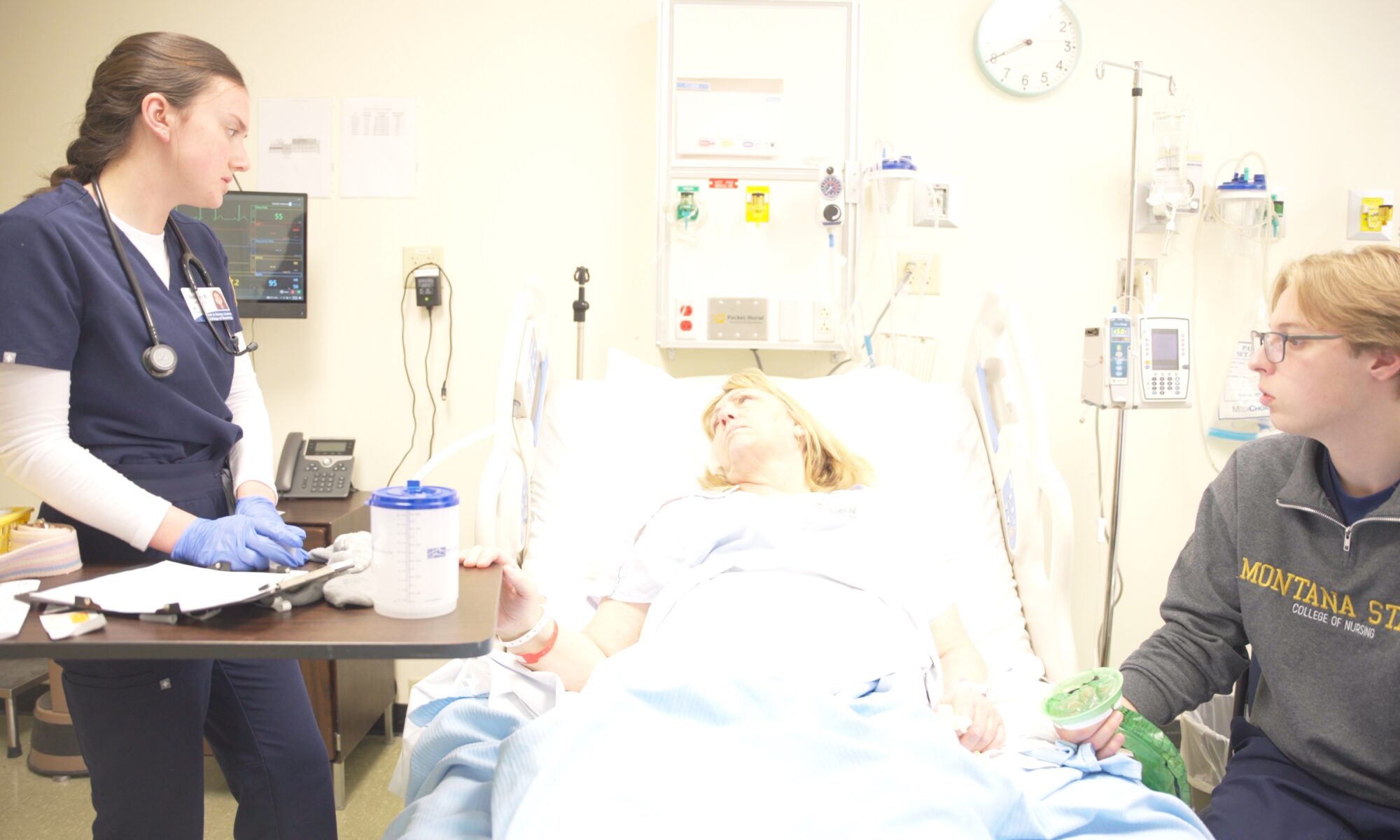Patricia Benner, MSN, R.N. Ph.D., FAAN.
NOTE: Dr. Shannon generously included the course design guidelines at the conclusion of this article.
Dean Sarah Shannon and faculty colleagues have re-imagined how Simulation courses for Clinical Learning can integrate learning goals for all courses.
These clinical learning Sim labs focus on formative learning and integrate the content of all nursing school courses. Citing the increasing scarcity of good clinical placements and the amount of “downtime” in clinical placement learning, Dean Sarah Shannon notes that “The Sim Labs effectively link the learning goals of all the nursing courses with Sim-lab clinical practice simulations, pre-briefing and de-briefing sessions.” Faculty and students are enthusiastic about the breakthroughs in clinical learning and improved practice-readiness of students.
In this series, we interview Dean Sarah Shannon, observe actual Sims with freshman and senior nursing students, and discuss an integrative approach to teaching theory, sciences, and clinical practice in Sim lab courses.
MSU Sim lab courses are designed to complement, enrich and inform all other nursing courses as well as substitute for selected clinical placements. Students count on their Sim Labs for effective integrative clinical learning. Dean Sarah Shannon explains, “We have a dedicated one-credit simulation course that students take every semester in the program. It is intentionally designed to complement the clinical and didactic coursework. We reduced our in-person clinical hours (much to the relief of our clinical partners) and yet, we are getting feedback that our students seem better prepared for clinical,” she adds.
Sim labs provide formative and integrative learning environments. They incorporate knowledge-skills from all other nursing courses. Costs and how the curriculum works are illustrated in the video featuring my in-depth conversation with Dean Shannon.
The Simulation courses create safe pass-fail learning environments for teaching-learning complex clinical nursing practice. Knowledge-skills, such as patient-teaching and communication, clinical reasoning, and debriefing, are covered. The Sim courses provide opportunities for rehearsing and revising compassionate, clear communication with live feedback from retired faculty members, often acting as patients. The Sim labs are designed to create reflection on practice, including learning from mistakes, observing students’ classmates and their own clinical performance in the Simulations, where the content is deliberately based on the learning goals of all other concurrent nursing courses. Selected volunteer faculty members completed a one-week intensive course by The Harvard University online Simulation Course (Harvardmedsim.org). The BSN and Accelerated BSN programs were launched in late fall 2019. Dean Shannon noted: “We completed the curriculum revision and approval process and implemented the new curriculum in Fall 2022. We graduated our first cohort of accelerated BSN students from the new curriculum in August 2023 and our first cohort of traditional BSN students from the new curriculum in Spring 2024. The program has been so successful that we plan to expand it.”
Our thanks to Dean Shannon and the entire faculty for sharing their insights during our visit and for letting us use their copyrighted course materials.

